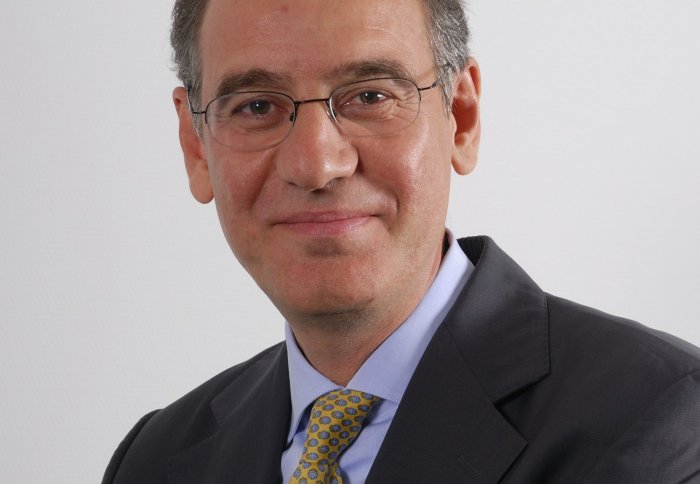An impressive year for Imperial's global health policy pioneer
by Colin Smith

Professor Rifat Atun
We speak to Professor Rifat Atun about a book he helped to edit 'Closing the Cancer Divide: An Equity Imperative' on the day of its launch.
Rifat Atun, Professor of International Health Management here at Imperial College London and Head of the Health Management Group, has recently returned from three-and-a-half years of extended leave when he worked at the Global Fund, the largest international funder of health programmes globally, as a member of the Executive Management Team and the Director of Strategy, Performance and Evaluation Cluster. Just seven months later, he is preparing for the launch of a book he helped to edit – Closing the Cancer Divide: An Equity Imperative – and the publication of three research studies within a fortnight in prestigious medical journals. Here, we speak to Rifat about what motivates him and what he hopes to achieve.
When did you first become interested in global health and why?
When I was at medical school, I saw that there was an opportunity to provide, not just good clinical care but also good policy to improve healthcare services across the world. Health policies affect lives and well-being of millions, and determine the nature and quality of care provided to individuals and populations.
Why did you think health policy needed to be improved?
Health systems, and especially hospitals, are typically rewarded for treating sick people. But there is very little reward for preventing illness and maintaining good health. This is where there is a real anomaly. These policies mean in effect we reward development of national sickness systems as opposed to health systems. It’s paradoxical that we call our system in England the National Health System.
What motivates you in your role?
I always get up early to leave for work because there are so many opportunities for achieving good health globally and empowering people to take care of their health. There have been remarkable achievements in biomedical science, computing and information technologies – with potential to transform the way we manage health. We now have new game-changing health technologies, innovative medicines and new diagnostics, but often these are not taken up appropriately in rich and poor countries alike.
When did you decide to focus the latest book you've worked on, on cancer?
Between 2006 and 2008, I was analysing cancer policies in European Member States, and was struck by their variable quality and how widely they differed between countries. I noticed significant gaps in policy and financial commitments to address cancer. Few of the plans had measurable or meaningful targets, with the exception of the national cancer plans, except for those in England and France.
What would you most like to achieve with your series of publications?
As well as the new book “Closing the cancer divide: an equity imperative”, which underlines the gross inequities in cancer care, in October I will have published three papers on global health policy, including one in the Lancet Infectious Diseases, which highlights a real inadequacy in UK research funding for infections with antimicrobial resistance.
This is very timely as it comes just before November when the Chief Medical Officer will release the “UK FIVE Year Antimicrobial Resistance Strategy and Action Plan 2013-2018”. I hope that our results will have a positive influence on this strategy and action plan.
What have you learned about the approach to global health over the last 20 years?
What’s important in global health is not what one individual or a discipline can do, but working across boundaries in an inclusive way as a team. It takes actors from different international institutions as well as organisations from multiple sectors in countries to develop solutions to address complex global health problems we face. Visible and sustained leadership, and engagement of the civil society are critical ingredients for success.
By Cher Thornhill
Article text (excluding photos or graphics) © Imperial College London.
Photos and graphics subject to third party copyright used with permission or © Imperial College London.
Reporter
Colin Smith
Communications and Public Affairs